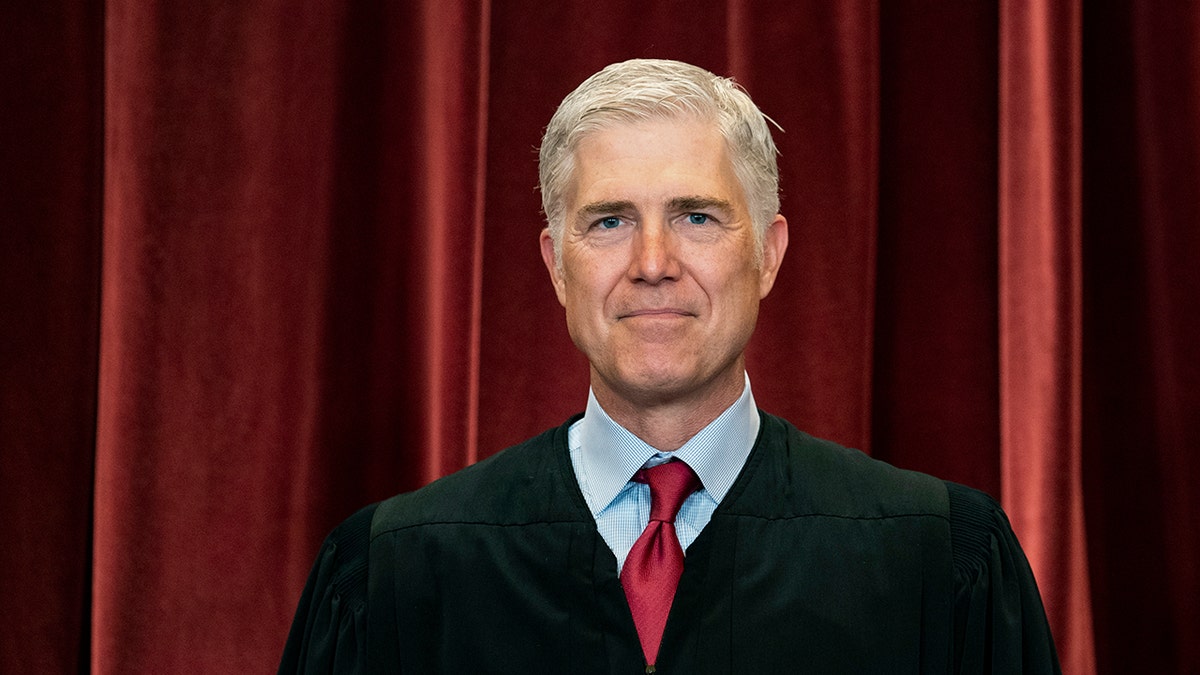Democrats Pursue Political Control of the Supreme Court
'Ethics' is the latest weapon against the Court's independence.
Left-wing activists, abetted by Democrat senators, continue to fling manufactured ethics controversies at the Supreme Court. Their latest demands call for probes of individual justices and the creation of a judicial morals watchdog, which follow earlier proposals to pack the court to change its ideological direction.
Even as they fend off this latest assault, justices recently displayed again that they defy the left’s cartoonish portrayal of them as simple partisans. Even though the case they decided focused on tiny piglets, it involved far more significant questions about the proper role of the courts in a system of divided government.
In National Pork Producers Council v. Ross, the court faced the latest in California’s endless drive to regulate every jot-and-tittle of business and the environment. In 2018, with the support of almost two-thirds of the voters, California adopted an animal rights measure that prohibits the sale of pork – no matter its origin – unless farmers obeyed Sacramento’s breeding standards.

The Supreme Court is seen at sundown in Washington, on Nov. 6, 2020. (AP Photo/J. Scott Applewhite, File)
While California represents about 12 percent of the U.S. population and 14.5 percent of the economy, it husbands virtually no pork. California’s law attempts to govern pork production throughout the nation, as producers cannot economically build two separate businesses, one for California and one for the rest of the nation.
Leftist critics of the court, who see everything through a partisan lens, would predict a court with three justices appointed by Donald Trump and three by the two Bushes to side with business over squishy California greens. Under the "dormant commerce clause," the federal courts have struck down state laws that – in the justices’ view – discriminate against interstate commerce or excessively burden out-of-state businesses in exchange for few local benefits.
Nevertheless, the Pork Producers majority, led by the conservative justices, upheld California’s piglet protections. Written by Justice Neil Gorsuch, the court’s decision marked a significant victory for the principle that the voters of each state, not unelected federal judges, decide what products can be sold within their borders. That conclusion is a significant affirmation of the enduring value of American federalism.

Written by Justice Neil Gorsuch, the court’s decision is a victory for the principle that the voters of each state decide what products can be sold within their borders. (Erin Schaff/The New York Times via AP, Pool, File)
California’s rules would be invalid if Congress, which has the power to regulate commerce between the states, had enacted national standards. But despite repeated requests from pork producers to intervene, Congress remained silent. In the absence of congressional action, Justice Gorsuch found, the voters of each state decide, rather than the federal courts, how its markets will work.
SUPREME COURT SIDES WITH PHOTOGRAPHER WHO SUED ANDY WARHOL ESTATE IN COPYRIGHT FEUD
The Framers intended to create a union akin to a free-trade zone, in which goods, services and people could flow without the interference of state tariffs or trade barriers. This constitutional policy has made an enormous contribution to our nation’s prosperity and has created interdependencies that solidify the union.
But the Framers also intended the states to continue to chart their own course over a range of matters of local concern – health, safety and morality among them. Even state policies affecting interstate commerce – such as the lockdowns imposed during COVID-19 – could be valid. National uniformity would have to yield to the states’s right to promote local interests and values.
But Congress rarely exercises its powers under the interstate commerce clause to pre-empt state laws the infringe on the national market. Without any apparent support from the text of the Constitution, the Supreme Court has long assumed the role instead.
In general, the court has held that when a state restricts the flow of interstate commerce to protect in-state businesses from out-of-state competitors, the state’s action is unconstitutional. It has found such impermissible economic discrimination both when it is overt and when the state is unable to give a rational explanation for burdening out-of-state commerce.
CLICK HERE TO GET THE OPINION NEWSLETTER
But Gorsuch and the majority insisted that the court use its power in this context with a light hand: "extreme caution" is warranted, he wrote, before the court invalidates a policy choice a state has democratically made.
Should the state harmfully interfere with the national market, Congress can pass a law to override California, or even authorize the courts to enforce a dormant commerce clause again. But until then, the court will withdraw from the activism that led it to review every piece of state economic legislation that might limit interstate trade.
Pork Producers should have significant consequences for later cases. The polarization that has beset the country is due in large part to the over-concentration of power in Washington, D.C. For most of the last 90 years, the Supreme Court has enabled that process.
CLICK HERE TO GET THE FOX NEWS APP
But a nation of 340 million people as different as ours needs a great deal of pluralism to survive and flourish. There need not be a single, one-size-fits-all national answer to whether cruelty to animals matters more or less than cheaper pork at the grocery counter. Though the judgment was not unanimous (and most of the dissent came from "conservatives"), the court wisely allowed California to go its own way.
Pork Producers was not only a win for federalism, but also for the pluralism that our society should embrace.
CLICK HERE TO READ MORE FROM JOHN YOO
John Yoo is a law professor at the University of California at Berkeley, a nonresident senior fellow at the American Enterprise Institute, and visiting fellow at the Hoover Institution. Robert and John are the authors of "The Politically Incorrect Guide to the Supreme Court."











































